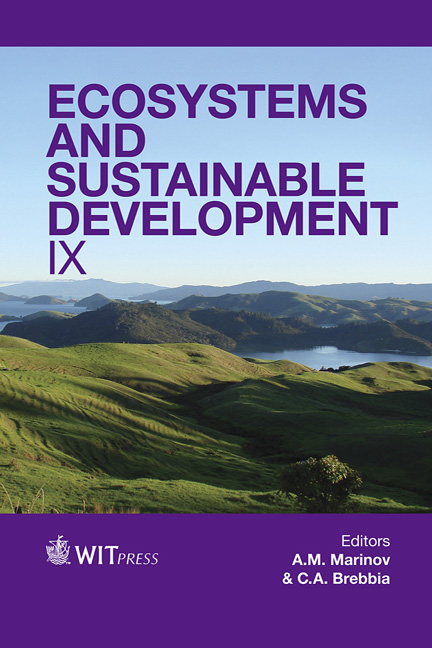Statistical Analysis Of Soy Cultivation In Argentina
Price
Free (open access)
Transaction
Volume
175
Pages
9
Page Range
11 - 19
Published
2013
Size
544 kb
Paper DOI
10.2495/ECO130021
Copyright
WIT Press
Author(s)
M. C. Miranda del Fresno, Y. Villacampa, F. J. Navarro-Gonzalez & P. Sastre-Vázquez
Abstract
In this paper, the different variables that characterize the soybean crop in Argentina are analyzed. The main objective is to obtain information that will be useful for the analysis of the environmental consequences of the progress of this crop in the country. This has been made by a descriptive statistical analysis and a factor analysis was used to identify factors which characterize the soybean crop and also a classification or clustering between provinces with similar characteristics. The information parameters studied were: the tendency and dispersion measures for soybean yield of 15 provinces in which it was grown between the 2001/02 and 2010/11 or from 2001/02 to 2010/11; the correlations between area harvested acreage, seeded area, production and performance, and the factors that bind some variables that characterize the soybean crop that allows a grouping between provinces with similar characteristics. Analyses were performed by using data obtained from: 1) MinAgri (last 10 seasons) b) 2001 National Census c) CNA 2002. From a group of variables: region extension (ha); population density 2001; population of the region in 2001; NBI 2001, literate people older than 10 years 2001; illiterate people older than 10 years 2001; permanent workers in the farming sector 2002; seeded area (ha) 2002; cultivated area of oily plants (ha) 2002; tractors 2002; harvesters 2002; seeded area (ha) 2001/02; harvested area (ha) 2001/02; production (Tn) 2001/02.
Keywords
soy, Argentina, statistical analysis, seeded area, harvested area





